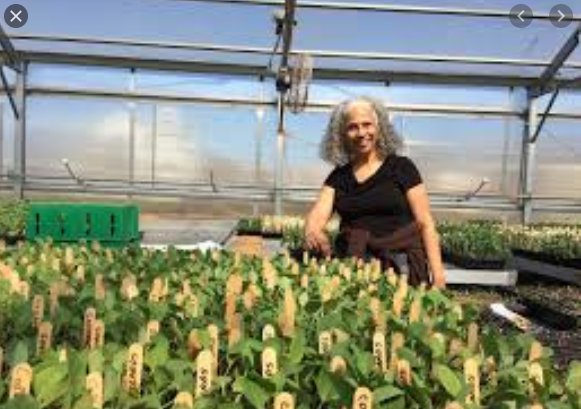Patrick Crouch has been spending long days in the greenhouse over the past few weeks, seeding and growing out transplants for eventual distribution to gardens across the city.
As a program manager at Earthworks Urban Farm, Crouch sees his role taking on a new importance during the COVID-19 crisis. “If you can get people to go out to the store once a month and just stockpile staples and then they are able to get fresh produce out of their backyard, you can really limit their movement,” he says.
Gardening seems to be having a moment as the crisis pushes people to find constructive ways to use their time, reduce trips to the grocery stores, and benefit from its therapeutic aspects.
But with Gov. Gretchen Whitmer’s recent order shutting down the sale of landscaping and gardening supplies in stores larger than 50,000 square feet, some are anxious about getting their gardens planted. Note: Politifact debunks the claim that it is illegal to purchase farm and garden supplies in Michigan.
Detroit’s farm and garden community have had to adapt to new realities — including helping their workers and customers stay safe and adjusting to an expected increased need for fresh food. They’re working hard to grow as much as possible with limited staff and doing without volunteer labor.
Crouch says other operations at the Earthworks, like selling fresh produce and giving food to the Capuchin Soup Kitchen, have had to take a back seat to transplant production. “The ability to keep people in place and…have nourishing food seems like the most impactful work we can do right now,” says Crouch.
Ashley Atkinson, co-director of Keep Growing Detroit (KGD), which runs the Garden Resource Program that supplies more than 1,500 gardens in Detroit, Hamtramck and Highland Park with seeds, compost, and vegetable transplants for a small fee, says planting gardens will be more critical for Detroiters this year than ever before.
“We’re basically assuming — and hopefully we’re proven wrong — that urban gardens and farms are going to be more important this year,” she says, as vulnerable Detroiters who have relied on growing some of their own produce see unemployment skyrocket at the same time food banks are seeing a huge spike in demand.
Kristin Sokul, a spokesperson for Gleaners Community Food Bank, told Planet Detroit that the organization distributed an additional 4 million pounds of food in Southeast Michigan since the crisis began— an increase of 25%. Although Gleaners has been able to maintain the volume of food they’re providing, they’ve run out of some items and are seeing long lines at pickups.
Homegrown produce could help this situation. But farmers are finding they need to adjust their operations in ways that can slow progress. For example, KGD’s distributions of plants and seeds are normally communal events that take place in locations throughout the city. However, this year, they plan on transitioning to curbside pickup to minimize or eliminate contact between KGD’s staff and program participants.
For article, click below:
Source: Planet Detroit: How Detroit’s farms and gardens are adapting to the COVID-19 crisis


